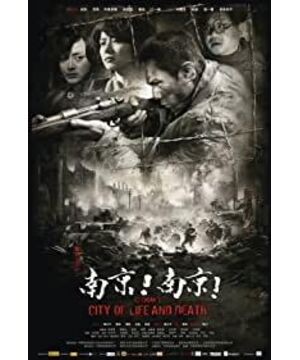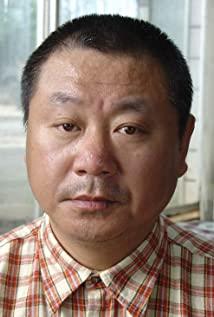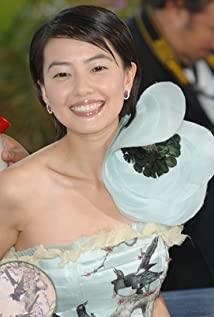What if I carried a gun at that time? If I was taken to Nanjing City under the lens of Lu Chuan at that time, would I be Rabe or Lu Jianxiong, Mr. Tang or Miss Jiang, the Japanese soldier Kadokawa, or the prostitute Xiaojiang? What is the relationship between the real sin in my soul and the desolation of the fleshly world full of bones? Or by chance, which means absolute. If the Japanese are absolutely evil, how are we absolutely? Or like magic and electricity, the gap in human nature loses its moral weight. Or, the physical world is an endless wasteland, and everything is so real. Yesterday's massacre, rape, lies, cowardice; today's youthful indignation or forgetfulness, masturbation, or joining the party. About soul and body, memory and reality, nation and individual, the most vivid and dazzling images are still Yu Dafu's novels, in which students studying in Japan lie in bed, masturbating and shouting, "Motherland, when will you be strong."
Thanks to the rise of the motherland, the macro environment of masturbation, once separated from the national ideology, is restored to a real ordeal in the soul. A friend asked why the concern for freedom and democracy disappeared. I said that suffering is everywhere, and sometimes it is an obstacle to our understanding of freedom. The real proposition of freedom is what if the Cultural Revolution hadn't ended when I died, what if the Allies hadn't landed when I died. The Qing court has not been overthrown, Japan has not surrendered, the contraceptive pill has not been invented, the revolution has not yet succeeded, and the plague is still spreading? The real challenge of freedom is, if so, is freedom still possible for me. Can liberty transcend institutional change and thus bring blessings to institutional change. If the answer is no, it means that for those who have lived in the world, freedom is just a coincidence. It happened that the reform and opening up happened, the Renaissance happened, and there happened to be a prostitute who was willing to stand up and serve as comfort women for the Japanese in exchange for the survivors’ food for the winter?
If so, a free intellectual, faced with the victims of the Nanjing Massacre, or the victims of the 512 Longmen Mountains earthquake - although we still don't have a list of them. What should you say. Could it be said that freedom is Mark Six, only available to some lucky ones. You have bad characters, and you are destined to have "no division, no rights, and no memory" in your life and freedom?
I answer my friends, not my beliefs, but my logic. Consider any ideal in the physical world, even if it is freedom, democracy and universal human rights, as the highest point of values and ideals in life. It means that your ideals are cold to anyone who has been insulted and damaged by a system of catastrophe, war, massacre or injustice. Because of your doctrine, you ruthlessly left them out of the Brave New World.
Therefore, watching this movie is not an opportunity for me to express national hatred and strengthen national identity. Or give young people a hyperlink to masturbation and the Nanjing Massacre. In fact, any description of suffering challenges and corrects our values. Just like walking on the street, I often ask myself, in my belief, in the cosmic life I believe in, the beggar across the street, the scolding person in front of me, or the bereaved mother-in-law in Zundao Town, Is there a place for them? In my hope, is there their hope? If my beliefs will logically leave out a part of human beings in an unjust way, my beliefs are false. Because I cut the world with my own ideals, and divided one human being into two or more human beings. How dare I, unless I am God.
In the past anti-Japanese war movies, human beings were divided into two types, like Qing Ben and beautiful women, so they were incomprehensible to evil. In fact, all the bad things that the Japanese did in Nanjing, the Chinese did to each other. Lu Chuan's courage is that the whole film takes Kadokawa as the main line and restores the Japanese to human beings. Kadokawa is not a demon, but a bad guy with humanity. He is not a different race from the Chinese, but the worst among us. He is bad, but he is still among us and is called man. Once he is called man, the best among us is equally responsible before God to the worst among us. Unless he is not human, we cannot leave him in the ultimate sense.
My soul has tasted this extraordinary pain. But the distinction between aggressors and victims is only the first layer. Righteous and sure, but not total and supreme. Just like freedom and democracy, at this level, it is also worth pursuing and affirming, but it is not all and supreme. Lu Chuan made a starting point that Chinese films should have been made long ago, but have been unable to make them. More than half of the director's talent was used for Kadokawa's final suicide to describe a human being caught in sin in detail.
What makes Kadokawa sad and unable to restrain himself is not a Japanese's remorse for the Chinese, but a man's remorse for a woman. Yuriko, a Japanese comfort woman whom he admired, brought rain with pear flowers. I felt pity for her, which made the religious nature of war collapse in his heart. The drum formation of the Japanese army to pay homage to the dead was the appearance of this religious national ideology, and it was even saturated to the point of breaking black and white. This is the finishing touch of Lu Chuan's attempt to understand the aggression and massacre, and it is also a rehearsal for the Yasukuni Shrine. Later, when Kadokawa saw Miss Jiang's cross necklace, he said that he was also studying in a church school and forced it. His boss Matsui shot and killed the younger sister, saying that such a beautiful woman should not live like this. Kadokawa's shock was just one of countless foreshadowings. Finally, Miss Jiang was dragged away by the soldiers, and she turned to the Japanese soldier with a cross and said a sentence in English, please kill me. Kadokawa shot her and eventually killed the Japanese soldier in his soul.
It is the courage of this film to "de-demonize" the Japanese. The problem is that the human gap between us and the enemy is shortened as a result. The director either did not have the courage to continue to face this tension, or he could not bear it himself. Therefore, he chose to "sublime" the Chinese to continue to maintain the human gap between the two races. The two biggest failures were the first half of the skirmishes and killings. Liu Ye's silent performance slowly accumulated great pressure. As a result, the soldiers of the national army finally shouted "Long Live China". The suffering of human nature, held by the specter of national ideology, has gone in a one-way direction. Instead of Jiang Wen, I think the soldiers must be shouting "Fuck your mother". This is more relevant to Mr. Tang's proudly saying to Matsui, "My wife is pregnant again" before he was shot. This is the persistence and humility in the world of the flesh, the curse and hope of the earth.
The second failure was to make Mr. Rabe kneel before the Chinese refugees. The gap in human nature, if you can't continue to look up, you can only kneel to the side of suffering. Otherwise, the de-demonization of the enemy is really unbearable for us. Although Xiaodouzi is still alive, China is not dead. But the film still lacks photosynthesis, using almost all the oxygen in the movie theater. That's why, I can't wait to see another Rabe Diaries.
View more about City of Life and Death reviews











